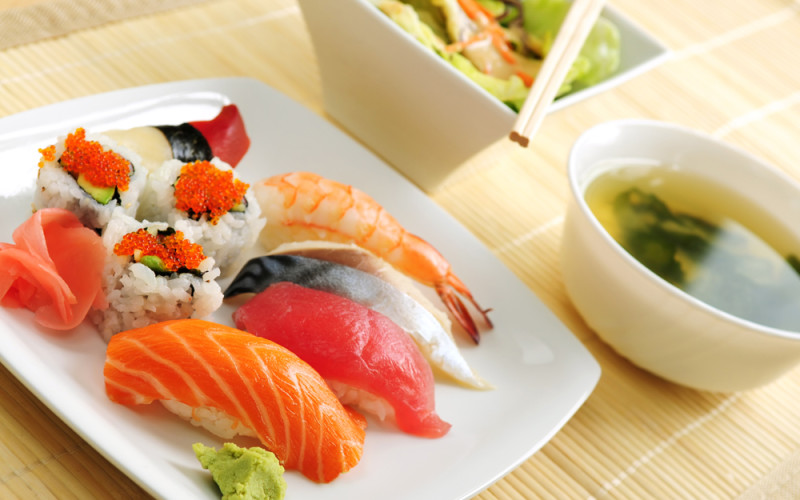The health benefits of sushi

Sushi – a Japanese food consisting of vinegarized rice rolled with other ingredients — is a delicious and healthy for you.
The most common types of sushi in the Western world are Norimaki & Nigiri. Norimaki contains rice and raw fish or seafood rolled in dried seaweed sheets called Nori. Nigiri contains small rice balls topped with raw fish or seafood.
Sushi comes in many flavors and combinations of ingredients, most of which are low in calories and packed with vitamins and minerals. Western‐style sushi originated with the California Roll—which contains crab, cucumber & avocado.
The seafood used in sushi is generally low in calories and high in protein. Fatty fishes used in sushi—such as salmon, mackerel, herring & tuna—are high in omega‐3 fatty acids, which have neurological, anti‐inflammatory, and cardio‐protective benefits.
The thin seaweed sheets (called Nori) that are used in maki rolls are rich in protein, fiber, omega‐3 fatty acids and many vitamins & minerals. One sheet of Nori contains the same amount of fiber as a cup of spinach and is loaded in iodine, a mineral essential for proper hormone function. Nori is also high in calcium, magnesium, iron, Vitamin A & Vitamin C.
The condiments served with sushi impart many health benefits as well. Ginger aids in digestion and helps kill bacteria. Wasabi—also known as Japanese horseradish—helps kill bacteria, especially any that may be found in raw fish.
When you order sushi, be aware that sushi containing fried tempura, cream cheese, or mayonnaise provide extra calories and fat, which can add up quickly.